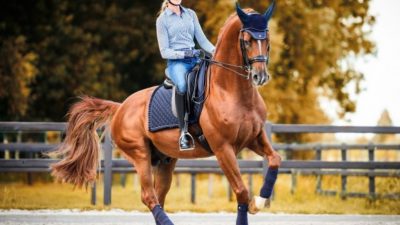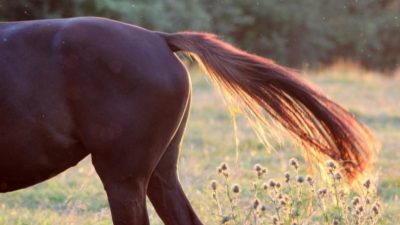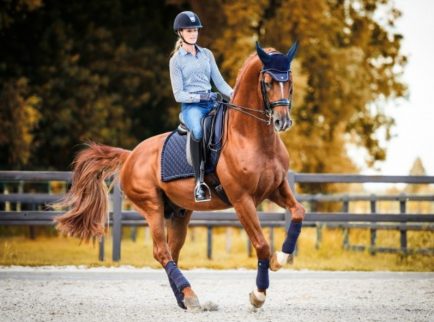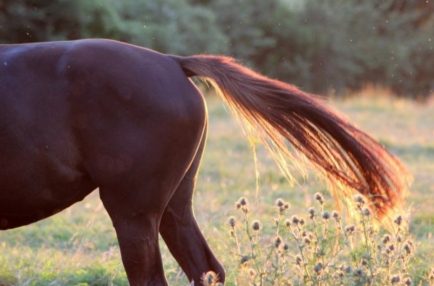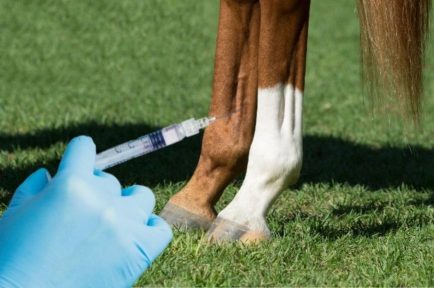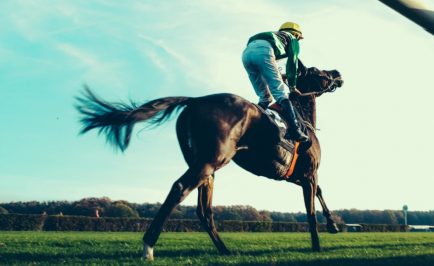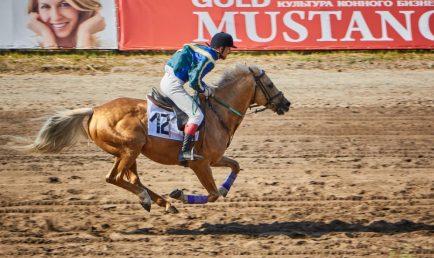Have you decided that you want to take the leap and the join millions of others who own a horse? Much like any large animal, horses rank high in the category of responsibility. With improvements in nutrition and health care, horses are living longer, productive lives. It’s not uncommon to find horses living well into their 20s and 30s. With this in mind, are you prepared to offer a life-long commitment to this horse or ensure that it is responsibly cared for should you no longer be able to financially provide for it? Besides the most important question of responsible horse ownership, there are many questions that you must first ask yourself when it comes to choosing the right horse for you or your child:
• What type of horse will best fit your needs?
• Where should I purchase a horse?
• How are the daily needs of the horse going to be met?
• What supplies/equipment will I need to get started?
• What are the expected costs of owning a horse?
The cost of owning a horse can certainly add up quickly. The expense of shelter, feed, veterinary care, hoof care and riding equipment are just some of the things that should be considered before purchasing. Before purchasing a horse for their children, parents should assess their child’s commitment. It would be wise to arrange with a local stable for riding lessons or the opportunity to participate in supervised care of a horse for a period of time to determine whether the child will be diligent with the routine care for the animal. Leasing a horse and participating in 4-H, Future Farmers of America (FFA) or the United States Pony Clubs, Inc. (USPC) are additional ways to accomplish this
Selecting the Right Horse for the Job
Whether you choose to travel to horse shows or just trail ride for pleasure, consider the type of riding that you intend to do. There are several styles of riding, which include English or Western disciplines. Once this factor has been determined, it is important to select a horse that has already been “schooled” or trained for that type of riding. Also, select a horse that has had the right level of training depending on your riding experience. Once you understand your own riding experience and limitations, you will be in a better position to choose a horse with a temperament that will best suit you. For example, an older horse that already has the skills you desire is typically a better purchase for a first-time horse owner or younger rider.
Also consider that a horse’s value is usually a combination of its pedigree, build or “conformation,” and its ability to complete desired tasks. Pedigree indicates selective breeding for desired traits. Strong genetic lines for a desired trait or performance increase horse value, so expect to pay more for the horse if the trait is important to you or the seller. Likewise, certain physical traits are important for show and use. As a result, you can expect to pay more for horses with conformation desirable for an intended purpose. A horse’s ability to perform desired tasks (its training and behavior) usually affects its value more than its pedigree or conformation. Expect to pay more for a horse already trained to complete a task than one that will require time and expense to reach that point.
Where to Look for the Perfect Horse
There are many different options for finding a horse to purchase. Two ways to purchase a horse are through a private contract and at public auction. Each has its advantages and disadvantages. Whatever way you choose to purchase your horse, a first-time buyer should be accompanied by a knowledgeable horse person. Together, you can evaluate the horse in various actions such as standing in the pasture, loading, grooming and riding. There will be at least three parties involved in the sale of a horse. The primary parties involved include the buyer, the seller and the horse. However, in some cases there will be secondary parties involved which can include, but are not limited to, an agent for the buyer, an agent for the seller, a trainer, insurance agencies or other advisors.
There are many resources available for finding a horse most suitable for your intentions. A primary resource is through the stable where you plan to board or ride. Many times, riding instructors can act as agents in locating a horse most suited for your riding style and ability. Breeders are another resource since they want to see their animals placed in good environments. Almost every breed of horse has a registration association that can direct you to a breeder in your area. You can also check newspapers or the bulletin board at your local tack store, which can also be a handy resource for locating horses for sale. However, here you have little knowledge of the seller and little recourse should the purchase prove unsatisfactory. While horses also are offered for sale over the Internet, it is not possible to see the quality of a horse or to actually handle the horse. Avoid purchasing any horse sight unseen. A video does NOT substitute for direct contact.
Don’t Skip the Pre-Purchase Examination
Owning a horse can be a big investment in time, money and emotion. Unfortunately, horses seldom come with a money-back guarantee. This is why it is important to investigate the horse’s overall health and condition through a purchase examination conducted by an equine veterinarian. Purchase examinations may vary, depending upon the intended use of the horse and the veterinarian who is doing the examination. The following guidelines from the American Association of Equine Practitioners (AAEP) will help ensure a custom-tailored exam:
• Choose a veterinarian who is familiar with the breed, sport or use for which the horse is being purchased.
• Choose a veterinarian who does not have a prior relationship with the owner or the horse in question.
• Explain to your veterinarian your expectations and primary uses for the horse, including short and long-term goals (i.e., showing, then breeding).
• Ask your veterinarian to outline the procedures that he/she feels should be included in the exam and why.
• Establish the costs for these procedures.
• Be present during the purchase exam. The seller or agent should also be present.
• Discuss with your veterinarian his/her findings in private.
• Don’t be afraid to ask questions or request further information about your veterinarian’s findings in private.
The veterinarian’s job is neither to pass nor fail an animal. Rather, it is to provide you with information regarding any existing medical problems, and to discuss those problems with you so that you can make an informed purchase decision. Many individuals that are looking to purchase a horse hear the words “guaranteed sound” or “I’ll buy him back if you don’t like him” or “money back guaranteed.” If comments like these are made, you should ask the seller if they are amenable to a 30-day grace period until the sale becomes final. This will often eliminate the question regarding whether the horse has been given a sedative or pain relieving agent during the pre-purchase examination to help the sale go through.
For more information about purchase examinations, ask your equine veterinarian for “Purchase Exams: A Sound Economic Investment,” a brochure provided by the AAEP. Additional information can be found on the AAEP Web site, www.aaep.org/horseowner.
How Will My Horse’s Needs Be Met?
When owning a horse, many different management styles exist when it comes to care and housing. As a prospective horse owner, one of the first decisions that must be made is where to house the horse. Many individuals have the ability to provide housing for their horse on their property. On-site housing has many advantages related to convenience of daily horse care and use. On the other hand, the responsibility of feeding and daily maintenance of the horse is much higher when the horse is housed on your property. This must be taken into consideration, versus boarding the horse at a local stable or boarding facility where it can be fed and watched on a daily basis by barn personnel. Also, be sure to check with local zoning officials before planning to keep your horse at home. You also can look into housing your horse in a stable facility, which can provide a variety of services to aid in daily horse care. These facilities also offer the advantage of increased interaction with other horse owners and organized activities for those boarding horses.
What Will I Need to Get Started?
How and where the horse is housed and cared for will affect the equipment needed. This will also affect daily operation costs, which can include feed, veterinary care and farrier services.
Costs to Consider When Owning a Horse
Potential horse owners should be aware of the associated costs that accompany ownership before purchasing a horse. These types of costs will vary due to the diversity of the use of the horse and the way that it is managed. Some expected costs to consider include:
• Grain/feed
• Hay/forage
• Pasture/turnout
• Salts/minerals or other supplements
• Farrier service (required every six to eight weeks)
• Veterinary care
• Utilities
• Tack & supplies
• Bedding
• Insurance
• Riding lessons
• Truck/trailer purchase or availability
Depending on whether you house the horse on your own property, boarding costs may also be factored into the added expense of horse ownership. Also, if you plan to travel with the horse to various horse shows, trail rides, etc. these fees should also be considered along with any breeding costs if you plan to use the horse as a breeding animal at some point during your ownership.
Enjoy the Ride
Most individuals own horses for hobby interests related to family and youth development or the enhancement of the quality of their life or entertainment. Advancements in the equine health field have helped to increase the life of the horse to well into their 30s, but often well beyond their athletic usefulness. Prepare to be a responsible horse owner and plan ahead for your horse’s retirement years and beyond.
As a horse owner, you should also plan to set aside an emergency fund for the unexpected but all too common injuries or illnesses that may occur in horse ownership. One final point for all horse owners to remember: the horse is a living being whose life and welfare are in your hands.










